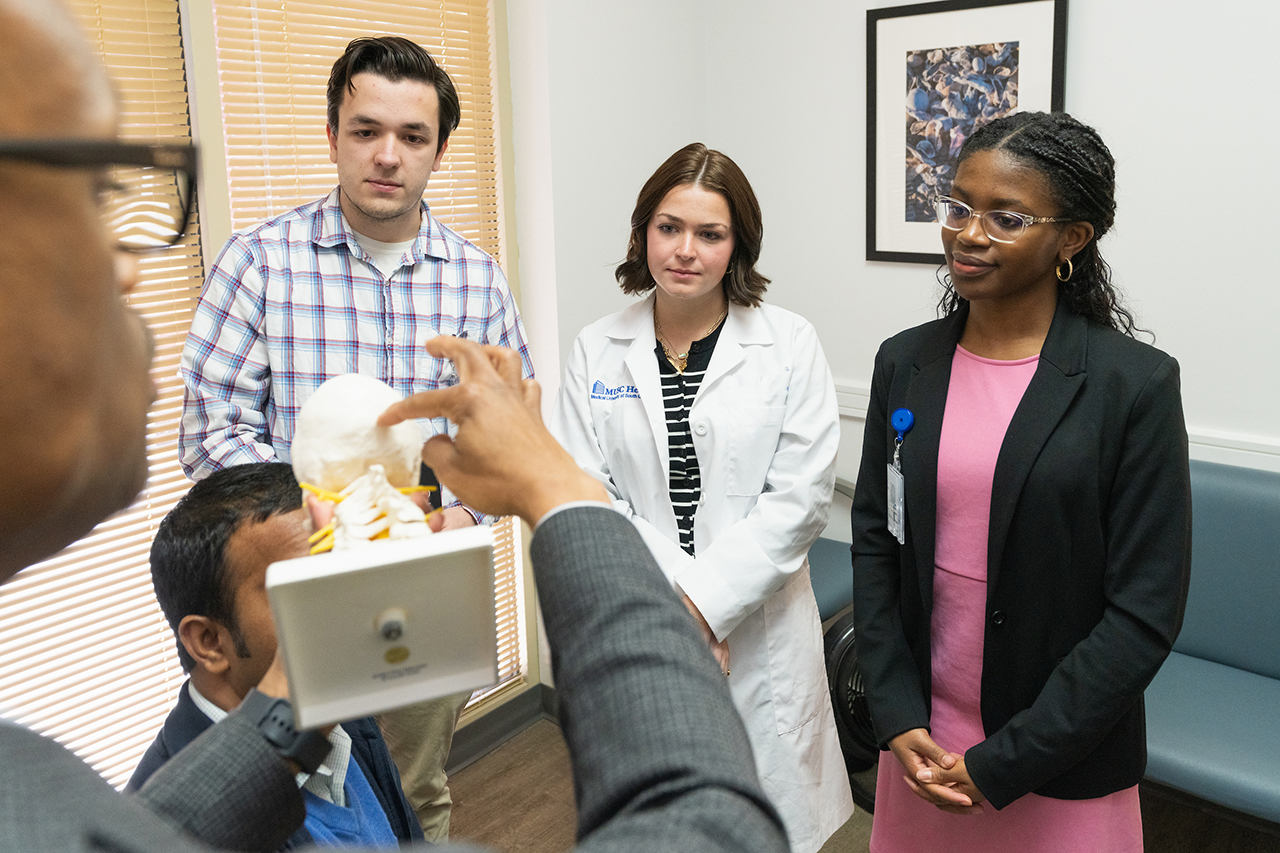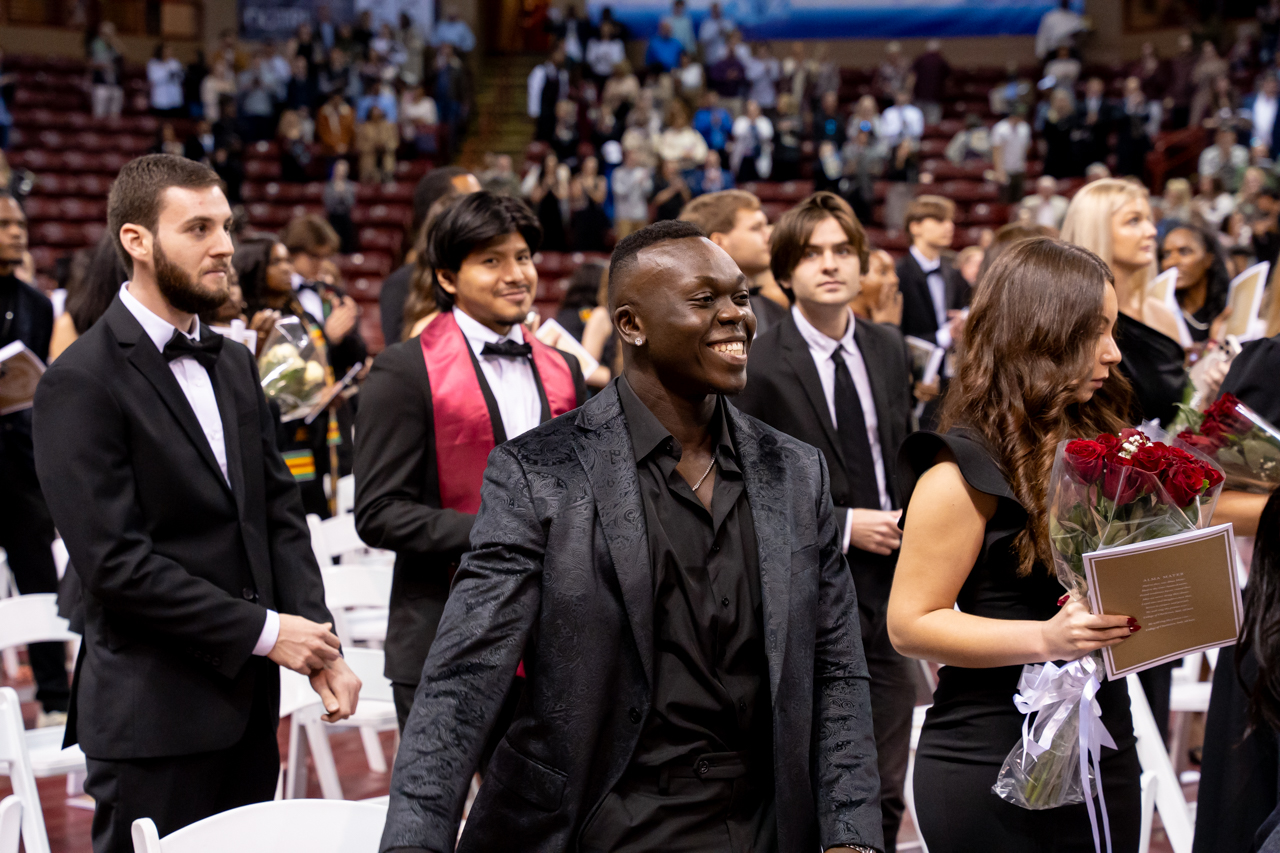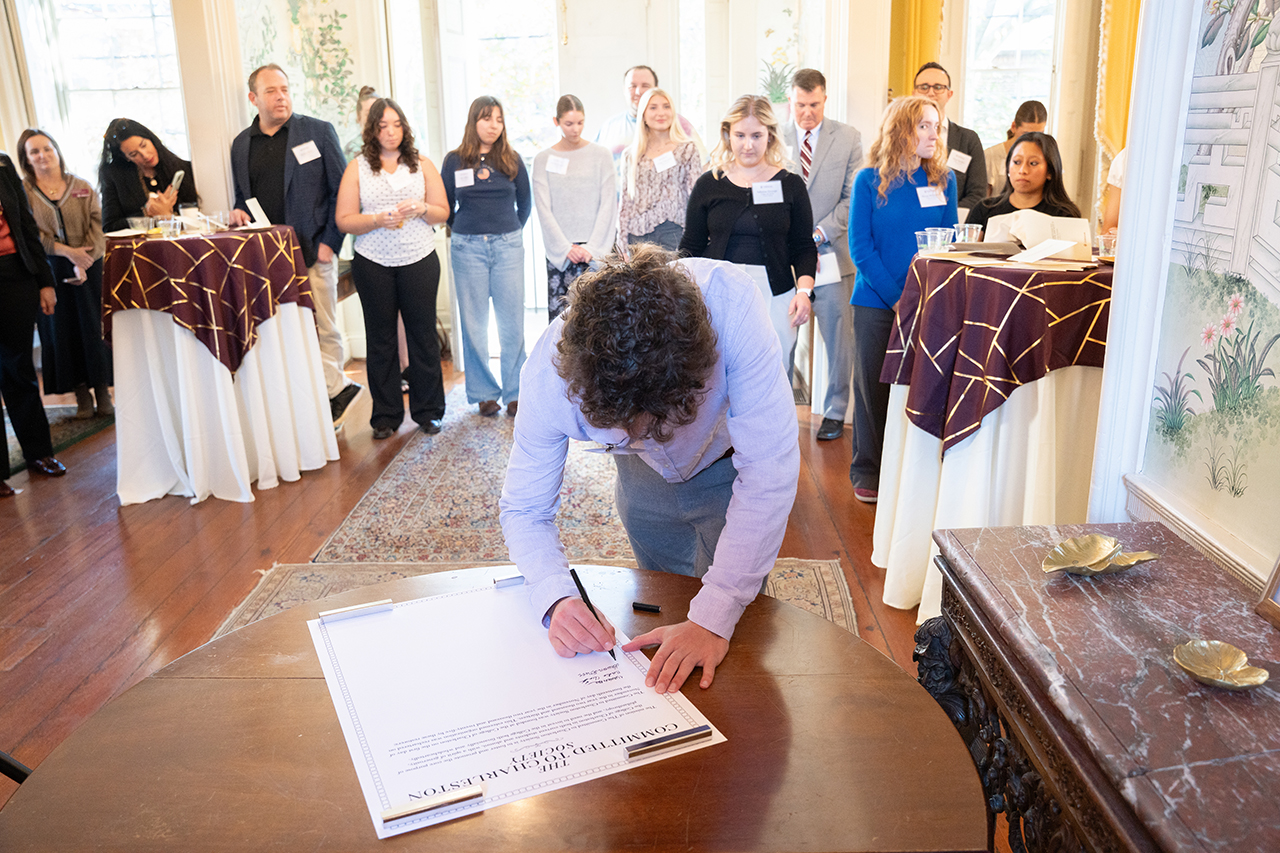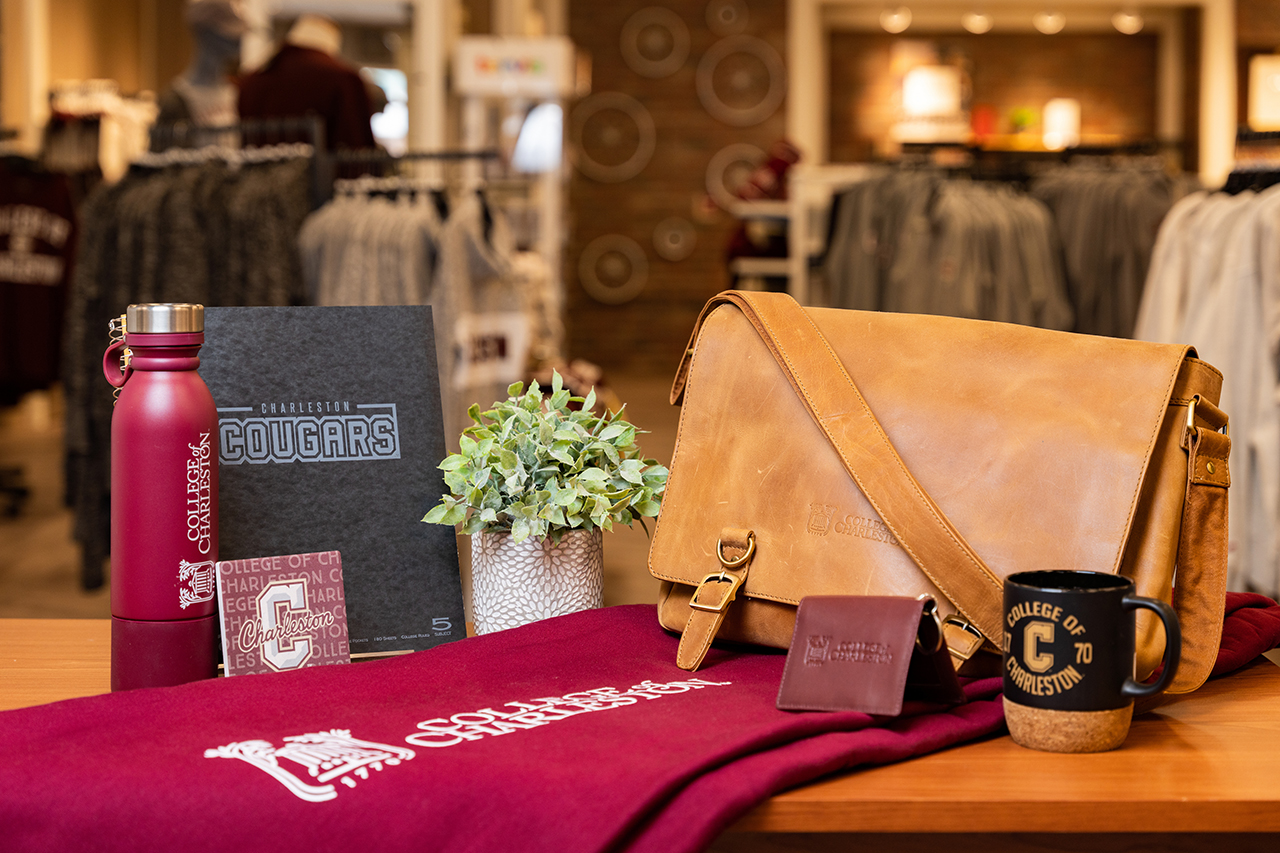Pay it Forward: Supporting Innovative Learning Through NUTIP
In the first installment of our Innovative Learning series, MUSC neurosurgeon Dr. Nathan Rowland had just met the late great Muhammad Ali, who suffered from Parkinson’s disease, and who inspired not just his career, but his work with College of Charleston Honors students in the Neurosurgery Undergraduate Training and Innovation Program. In this installment, we follow three CofC students into Rowland’s OR, where he is performing a deep brain stimulation surgery on a patient with Parkinson’s disease.

Above: CofC students (l–r) Christian Herring, Hannah Parris and Kaycee Tompkins shadow Dr. Nathan Rowland (far left) as part of the NUTIP, a pre-med training partnership with the MUSC Department of Neurosurgery.
It’s a cool, late-fall morning when Kaycee Tompkins, Christian Herring and Hannah Paris arrive at the Medical University of South Carolina (MUSC) Health Neurosurgery clinic in North Charleston. The three undergrads walk briskly down a narrow hallway, change into scrubs and sterilize their hands. Today they will watch Dr. Nathan Rowland and his team perform brain surgery.
Rowland is a neurosurgeon whose clinical interests include Parkinson’s disease, degenerative spinal disorders, obsessive compulsive disorder and anorexia. Tompkins, Herring and Paris are participants in a program jointly administered by the MUSC Department of Neurosurgery and the Honors College at the College of Charleston.
Today the students will be observing a surgery on a patient who is suffering from Parkinson’s disease.
“Sometimes patients suffering from tremors get a deep brain stimulator surgery to improve movement in their hands, arms and legs,” says Tompkins, an Honors College student majoring in biology. “The surgery involves placing an electrode in the globulus pallidus externus, a part of the brain that regulates conscious and voluntary movement. The electrode can be used to reduce tremor symptoms by stimulating the brain. It’s nerve-wracking to watch.”
Observing the surgical team at work in the OR is like “watching a choreographed dance, with the residents moving around each other,” Tompkins says. And it goes on for hours. “Some surgeries are eight to 10 hours, and Dr. Rowland doesn’t ever take a break!”
The NUTIP (Neurosurgery Undergraduate Training and Innovation Program) is the brainchild of two former College of Charleston students who saw a need for hands-on shadowing experiences for college students interested in going to medical school, where competition is fierce and students with experiences shadowing doctors in the operating room, participating in clinical rounds and conducting laboratory research have a leg up.
Despite his overwhelmingly busy schedule, Rowland said “yes” to mentoring students because of his mentor in medical school, who introduced him to the late Muhammad Ali, the greatest heavyweight boxer of all time. At the time of their meeting, Rowland had earned his Ph.D. and was thinking about dropping out of medical school. With two years remaining, and after countless hours in the lab, it seemed logical to focus on becoming an assistant professor in neuroscience, where he could continue his research.
“I hadn’t done a neurology rotation because I was so bent on becoming a Ph.D. scientist, but that was the day I realized how your past connects to your future. That was my inspiration,” says Rowland. “And Muhammad Ali was so generous with me. He allowed me to do the most simple and basic kind of neuro exam. I was actually doing it the first time for this one moment. He said to me, ‘I understand what you’re trying to do. I’m behind you. I support you.’’’
Here was an American icon telling a medical student he understood what he was trying to do. “He so wanted me to succeed,” Rowland says. “Receiving that kind of inspiration made me realize that I needed to be that inspiration for someone else.”
And so, it is thanks to Muhammad Ali, that a renowned neurosurgeon at the Medical University of South Carolina said “yes” to two College of Charleston undergraduate students who launched the NUTIP – and the careers of many College of Charleston students to come.
Tune in for the next installment of our Innovative Learning series to learn how NUTIP has impacted the lives of CofC students, the surgical team at MUSC and the careers of many health care workers to come.



